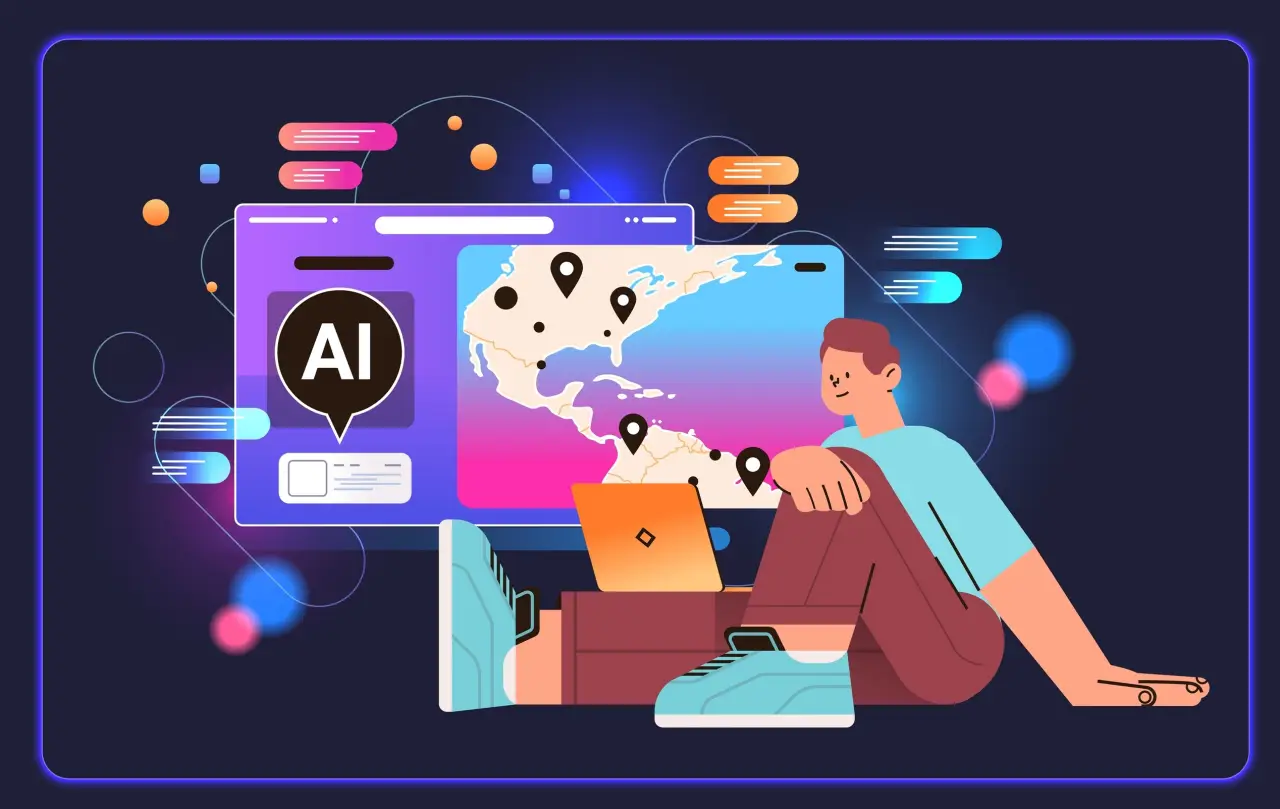AI Insights
What Gets Measured, AI Will Automate

Smart leaders must bet on the unmeasurable: taste, trust, experiences, and the yet-unknown.
AI Insights
Spain Leads Europe in Adopting AI for Vacation Planning, Study Shows

Spain records higher adoption of Artificial Intelligence – AI in vacation planning than the European average, according to the 2025 Europ Assistance-Ipsos barometer.
The study finds that 20% of Spanish travelers have used AI-based tools to organize or book their holidays, compared with 16% across Europe.
The research highlights Spain as one of the leading countries in integrating digital tools into travel planning. AI applications are most commonly used for accommodation searches, destination information, and itinerary planning, indicating a shift in how tourists prepare for trips.
Growing Use of AI in Travel
According to the survey, 48% of Spanish travelers using AI rely on it for accommodation recommendations, while 47% use it for information about destinations. Another 37% turn to AI tools for help creating itineraries. The technology is also used for finding activities (33%) and booking platform recommendations (26%).
Looking ahead, the interest in AI continues to grow. The report shows that 26% of Spanish respondents plan to use AI in future travel planning, compared with 21% of Europeans overall. However, 39% of Spanish participants remain undecided about whether they will adopt such tools.
Comparison with European Trends
The survey indicates that Spanish travelers are more proactive than the European average in experimenting with AI for holidays. While adoption is not yet universal, Spain’s figures consistently exceed continental averages, underscoring the country’s readiness to embrace new technologies in tourism.
In Europe as a whole, AI is beginning to make inroads into vacation planning but at a slower pace. The 2025 Europ Assistance-Ipsos barometer suggests that cultural attitudes and awareness of technological solutions may play a role in shaping adoption levels across different countries.
Changing Travel Behaviors
The findings suggest a gradual transformation in how trips are organized. Traditional methods such as guidebooks and personal recommendations are being complemented—and in some cases replaced—by AI-driven suggestions. From streamlining searches for accommodation to tailoring activity options, digital tools are expanding their influence on the traveler experience.
While Spain shows higher-than-average adoption rates, the survey also reflects caution. A significant portion of travelers remain unsure about whether they will use AI in the future, highlighting that trust, familiarity, and data privacy considerations continue to influence behavior.
The Europ Assistance-Ipsos barometer confirms that Spain is emerging as a frontrunner in adopting AI for travel planning, reflecting both a strong appetite for digital solutions and an evolving approach to how holidays are designed and booked.
Photo Credit: ProStockStudio / Shutterstock.com
AI Insights
NBA star Tristan Thompson is bringing artificial intelligence to basketball fans

Listen and subscribe to Financial Freestyle on Apple Podcasts, Spotify, or wherever you find your favorite podcasts.
Tristan Thompson is well-recognized for his career in the NBA, having played for teams like the Cleveland Cavaliers, the Boston Celtics, and the Los Angeles Lakers, to name a few. He was even part of the team that earned an NBA championship in 2016. But while Thompson’s basketball reputation precedes him, off the court, he’s focusing on his various entrepreneurial ventures.
When asked by Yahoo Finance’s Financial Freestyle podcast host Ross Mac if he would invest his final dollar in artificial intelligence or the blockchain, Thompson picked the industry that’s already projected to be worth $3.6 trillion by 2034.
“You see what Mark Zuckerberg’s paying for all these AI gurus? So I might go AI,” he said (see the full episode above; listen below).
This embedded content is not available in your region.
Thompson has already made AI one of his entrepreneurial ventures with the launch of TracyAI, an artificial intelligence that’s meant to offer real-time NBA analysis and predictive insights.
“Imagine a sports analyst or commentator on steroids,” he explained to Mac. “What I mean by that is having all the high-level analytics that you cannot get from NBA.com and ESPN … the analytics are coming from the professional teams. We have certain data and access to certain companies that only professional sports teams have access to. And I was able to pull that data with my resources and put it into the AI agent.”
Thompson saw the venture as “low-hanging fruit,” as it was one of the few areas he hadn’t yet noticed artificial intelligence being worked into. Though AI is slowly finding its way into the sports industry, TracyAI offers basketball fans access to statistics and projections they may not have had through the typical channels, creating a unique fan experience.
Though Thompson admitted AI has created some of its own controversies, it’s a venture where he’s ready to invest some of his financial resources to capitalize on the industry’s projected rapid growth.
“For me, it’s like, if [AI is] covering so many sectors, how come it hasn’t got into sports?” Thompson said. “This is an opportunity where I can be a visionary and a pioneer … I’ve always had this grind, build-up mentality, so it just migrated easily into Web3. If you look at Daryl Morey, he said he used AI agents to curate his Sixers roster … that just shows you that’s the first domino effect into something great.”
AI Insights
No, AI Is Not Better Than a Good Doctor

Search the internet and you will find countless testimonials of individuals using AI to get diagnoses their doctors missed. And while it is important for individuals to take ownership of their healthcare and use all available resources, it is just as important to understand the process behind an AI diagnosis.
If you ask AI to figure out what ails you based on inputting a series of symptoms, the AI will use mathematical probability to calculate the appropriate sequence of words that would generate the most valuable output given the specific prompt. The AI has no intrinsic or learned understanding of what “body,” “illness,” “pain,” or “disease” mean. Such practically meaningful concepts to humans are, to the bot, just letters encountered in the training set frequently paired with other letters.
New research on AI’s lack of medical reasoning
Recently, a team of researchers set out to investigate whether AIs that achieved near-perfect accuracy on medical benchmarks like MedQA actually reasoned through medical problems or simply exploited statistical patterns in their training data. If doctors and patients more widely rely on AI tools for diagnosis, it becomes critical to understand the capability of AI when faced with novel clinical scenarios.
The researchers took 100 questions from MedQA, a standard dataset of multiple-choice medical questions collected from professional medical board exams, and replaced the original correct answer choice with “None of the other answers.” If the AI was simply pattern-matching to its training data, the change should prove devastating to its accuracy. On the other hand, if there was reasoning behind its answers the negative effect should be minimal.
Sure enough, they found that when an AI was faced with a question that deviates from the familiar answer patterns it was trained on, there was a substantive decline in accuracy, from 80% to 42% accuracy. This is because AI today are still just probability calculators, not artful thinkers.
Artful medical practitioners see, hear, feel, and recognize medical conditions in ways they are often not consciously aware of. While an AI would be thrown off by an unfamiliar description of symptoms, good doctors listen to the specific word choices of patients and try to understand. They appreciate how societal factors can impact health, trusting both their own intuitions and those of the patient. They pay close attention to all the presenting symptoms in an open-minded manner, as opposed to algorithmically placing the patient in a generic diagnostic box.
Healing is more than a single task
And yet, algorithmic supremacists are as confident as ever in their belief that human healthcare providers will be replaced by machines. In 2016, at the Machine Learning and Market for Intelligence Conference in my hometown of Toronto, Geoffrey Hinton took the mic to confidently assert: “If you work as a radiologist, you are like Wile E. Coyote in the cartoon. You’re already over the edge of the cliff, but you haven’t yet looked down … People should stop training radiologists now. It’s just completely obvious that in five years deep learning is going to do better than radiologists.”
Seven years later, well past the five-year deadline, Kevin Fischer, CEO of Open Souls, attacked Hinton’s erroneous AI prediction, explaining how tech boosters home in on a single behavior against some task and then extrapolate broader implications based on that single task alone. The reality is that reducing any job, especially a wildly complex job that requires a decade of training, to a handful of tasks is absurd.
As Fischer explains, radiologists have a 3D world model of the brain and its physical dynamics in their head, which they use when interpreting the results of a scan. An AI tasked with analysis is simply performing 2D pattern recognition. Furthermore, radiologists have a host of grounded models they use to make determinations, and, when they think artfully, one of the most important is whether something “feels” off. A large part of their job is communicating their findings with fellow human physicians. Further, human radiologists need to see only a single example of a rare and obscure condition to both remember it and identify it in the future, unlike algorithms, which struggle with what to do with statistical outliers.
So, by all means, use whatever tools you can access to help your wellness. But be mindful of the difference between a medical calculator and an artful thinker.
-
Tools & Platforms3 weeks ago
Building Trust in Military AI Starts with Opening the Black Box – War on the Rocks
-

 Business2 days ago
Business2 days agoThe Guardian view on Trump and the Fed: independence is no substitute for accountability | Editorial
-

 Ethics & Policy1 month ago
Ethics & Policy1 month agoSDAIA Supports Saudi Arabia’s Leadership in Shaping Global AI Ethics, Policy, and Research – وكالة الأنباء السعودية
-

 Events & Conferences3 months ago
Events & Conferences3 months agoJourney to 1000 models: Scaling Instagram’s recommendation system
-

 Jobs & Careers2 months ago
Jobs & Careers2 months agoMumbai-based Perplexity Alternative Has 60k+ Users Without Funding
-

 Funding & Business2 months ago
Funding & Business2 months agoKayak and Expedia race to build AI travel agents that turn social posts into itineraries
-

 Education2 months ago
Education2 months agoVEX Robotics launches AI-powered classroom robotics system
-

 Podcasts & Talks2 months ago
Podcasts & Talks2 months agoHappy 4th of July! 🎆 Made with Veo 3 in Gemini
-

 Podcasts & Talks2 months ago
Podcasts & Talks2 months agoOpenAI 🤝 @teamganassi
-

 Mergers & Acquisitions2 months ago
Mergers & Acquisitions2 months agoDonald Trump suggests US government review subsidies to Elon Musk’s companies

